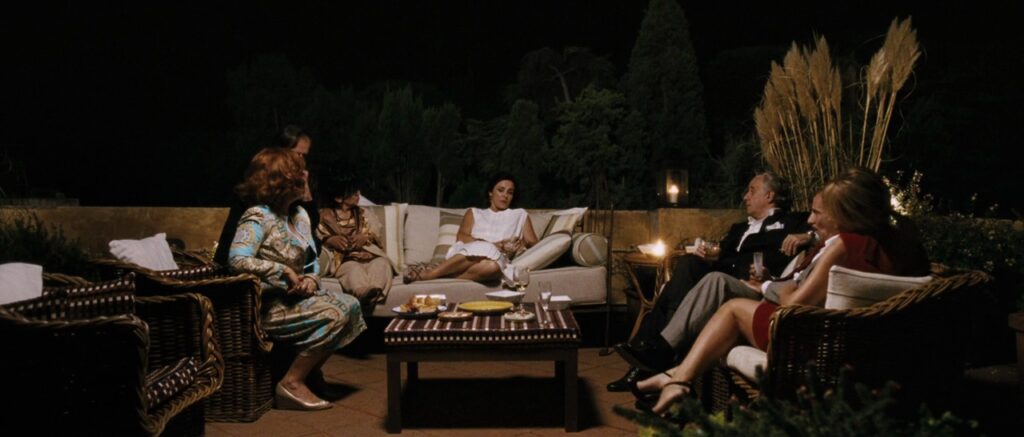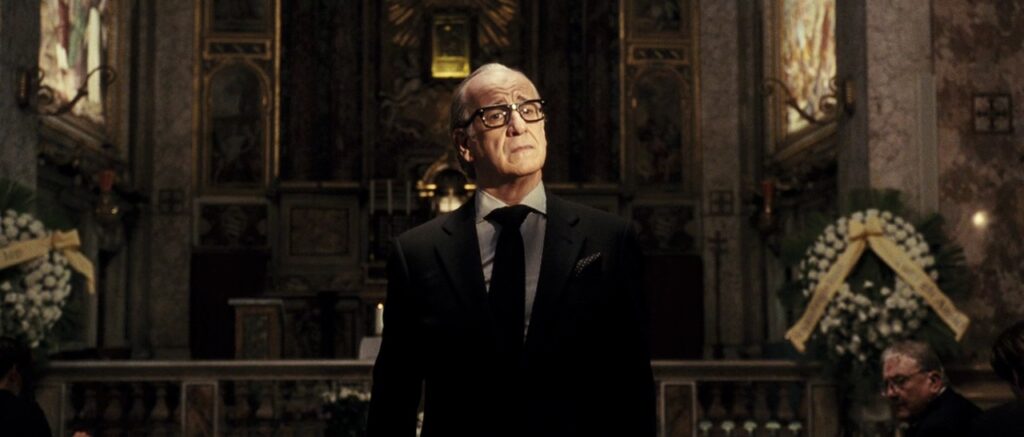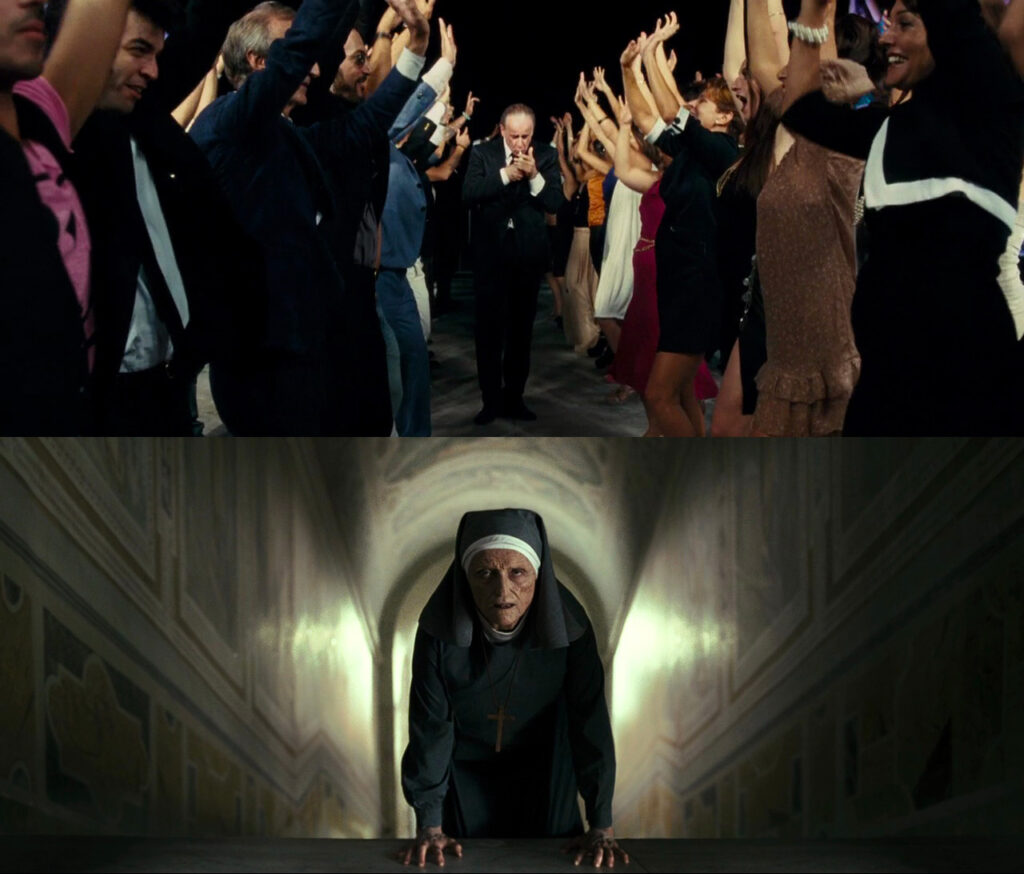Paolo Sorrentino’s The Great Beauty is a film that elegantly explores life’s most profound questions: What gives life meaning? How do we reconcile the fleeting nature of beauty, success, and pleasure with the human longing for purpose? Through the story of Jep Gambardella, a jaded socialite navigating the decadence of Rome’s elite, the film contrasts two distinct approaches to life—the hedonistic pursuit of pleasure and the spiritual path of devotion.
As Jep grapples with his fading youth and lost opportunities, the film masterfully juxtaposes scenes of extravagant parties with moments of quiet introspection, offering a visual and emotional exploration of the divide between indulgence and transcendence. Amidst the chaos of high society and the wisdom of spiritual figures like the nun, The Great Beauty challenges viewers to reflect on their own search for meaning.
In this delicate balance between decadence and devotion, the film reveals a deeper truth: neither path offers all the answers, but both hold valuable lessons about the human condition and the quest for authenticity.
The High Society: Hedonism and Superficiality

Rome’s high society represents a world of hedonism, decadence, and distraction. These are people who spend their lives partying, pursuing fleeting pleasures, and maintaining appearances, but their lives lack depth or lasting fulfillment. The characters in this world are glamorous, vibrant, and alluring, but their beauty and energy mask a profound emptiness. For instance:
• The Botox scene shows the desperate attempt to cling to youth and beauty, revealing an unwillingness to face the inevitable passage of time.
• The old stripper is a poignant symbol of someone who has aged out of the glamorous lifestyle but is still trying to cling to it.
The high society characters often seem “alive” on the surface, but their lives are devoid of purpose or authenticity. They live in a perpetual state of distraction, avoiding deeper truths or meaningful self-reflection.
However, Sorrentino doesn’t entirely condemn this lifestyle. The parties, the art, the beauty of Rome—all have their own kind of transient allure. The film recognizes that these pleasures, though fleeting, are part of the human experience. Jep himself has indulged in this lifestyle for decades, and while he becomes disillusioned with its emptiness, he doesn’t entirely reject it. There’s a certain beauty, even in the decadence, but it is ultimately unsustainable as a source of meaning.
The Nun: Simplicity and Spirituality

The nun, Sister Maria, represents the opposite extreme: a life of humility, simplicity, and spirituality. Her presence in the film serves as a counterpoint to the emptiness of high society. As a 104-year-old ascetic who eats only roots and dedicates her life to serving others, she embodies a sense of purpose and devotion that is absent in Jep’s social circle. Her ability to climb the stairs to a sacred site—a feat that no one expects from her frail body—symbolizes her spiritual strength and connection to something greater than herself.
Sister Maria’s life suggests that true fulfillment comes not from indulgence or external validation, but from inner peace and selflessness. Her simplicity and authenticity contrast sharply with the artificiality of high society. When Jep asks her why she chose to dedicate her life to spirituality, her cryptic response—“Roots are important”—implies the importance of grounding oneself in something deeper, whether that’s faith, love, or a sense of purpose.
However, the nun’s extreme asceticism may not resonate with everyone. Her rejection of worldly pleasures and embrace of austerity might seem unapproachable or overly idealistic to those who find value in art, beauty, and sensual experiences. Sorrentino doesn’t glorify her lifestyle as the only “right” path, but rather as a counterbalance to the hedonism of high society.
Unmasking Hypocrisy: Jep’s Moment of Truth

The scene where Jep confronts Stefania, the woman lecturing him is one of the most memorable moments in The Great Beauty. It occurs during a dinner party where a woman from Jep’s social circle, a writer, begins to self-righteously lecture Jep about how she leads a life of meaning and integrity. She criticizes Jep’s lifestyle, claiming moral superiority and portraying herself as a person dedicated to social causes and intellectual pursuits.
Jep listens patiently at first, allowing her to present her case. But as her condescension grows, Jep calmly but devastatingly dismantles her facade. He points out the inconsistencies in her life, exposing how her actions contradict the virtuous image she tries to project. He highlights the compromises she has made, including her questionable relationships and her own participation in the very superficiality she claims to disdain.
This moment is significant because Jep, who often lets the absurdity of his social world wash over him, chooses to respond with sharp, unvarnished honesty. His words cut through her pretensions, leaving her speechless and exposed. The power of this scene lies in its brutal truth—it reveals how people, even those who claim moral high ground, often hide their insecurities and flaws behind a carefully constructed mask.
The scene encapsulates one of the film’s core themes: the tension between appearances and authenticity. Jep’s honesty is not meant to humiliate, but rather to challenge the shallow moral superiority that people often use to avoid confronting their own contradictions. It’s a pivotal moment that demonstrates Jep’s growing disillusionment with the social games and hollow personas of the people around him.
Authenticity vs. Hypocrisy: Jep’s Search for Truth

The difference between Stefania, the woman Jep dismantles and the nun lies in their authenticity, values, and the way they live their lives. Jep respects the nun because her actions align with her beliefs, while he dismantles Stefania because her life is built on contradictions and superficial moral superiority.
Stefania: Hypocrisy and Self-Righteousness
Stefania represents the superficial, hypocritical aspect of Jep’s social world. She projects an image of moral and intellectual superiority, claiming to lead a meaningful life while simultaneously engaging in the very behaviors she criticizes. Her lecture to Jep is condescending and self-serving, not born out of genuine concern or wisdom but from a desire to elevate herself at his expense.
Jep sees through this façade. He recognizes that her critique is rooted in insecurity, a desperate attempt to validate her choices and mask her own flaws. By exposing her inconsistencies—her compromises, shallow pursuits, and participation in the same superficiality she condemns—Jep unravels her mask of righteousness. She lacks the self-awareness and integrity to truly embody the values she preaches, which makes her an easy target for Jep’s sharp honesty.
The Nun: Authenticity and Humility
In stark contrast, the nun, Sister Maria, lives her life with humility and purpose. She doesn’t preach or seek validation from others; her actions speak for themselves. Her dedication to serving others, her austere lifestyle, and her unwavering commitment to her faith reflect a deep sense of authenticity. She embodies her beliefs without the need for recognition or approval, which commands Jep’s respect.
The nun is free of pretense and doesn’t try to impose her worldview on others. Her simple yet profound wisdom—such as her comment about the importance of “roots”—comes from lived experience and spiritual depth, not intellectual posturing. Unlike Stefania at the dinner party, she doesn’t feel the need to compare herself to others or judge them to assert her own value.
Why Jep Respects One and Dismantles the Other
Jep respects authenticity, even if it comes in a form he doesn’t entirely understand or relate to, like the nun’s asceticism. Her life is grounded in purpose and selflessness, qualities that Jep admires even if he doesn’t share her path.
On the other hand, Stefania embodies the very things Jep despises: superficiality, self-righteousness, and a lack of introspection. Her moralizing comes off as hypocritical, and Jep sees it as another empty performance in the social charade he has grown disillusioned with.
Ultimately, Jep’s interaction with Stefania is a reflection of his desire for honesty and authenticity. While he has participated in the decadence of high society, he no longer tolerates the lies people tell themselves to justify their lives. The nun, in her quiet and humble way, offers a glimpse of the deeper meaning Jep is searching for, while the woman represents everything he is trying to leave behind.
Jep’s Perspective: The Middle Path

Jep Gambardella stands between these two worlds. Over the course of the film, he grows disillusioned with the shallow pleasures of high society, but he doesn’t fully embrace the asceticism of the nun either. Instead, Jep seems to seek a middle path—a way to find beauty, meaning, and authenticity without completely rejecting the joys of life.
By the end of the film, Jep reflects on his life and begins to see the beauty in both the fleeting and the eternal:
• He recalls his first love, Elisa, and the profound impact she had on him. This memory helps him reconnect with a sense of innocence and genuine emotion that he had lost in his pursuit of superficial pleasures.
• He begins to appreciate the small, transient moments of beauty in life—sunsets, the sound of waves, the city’s timeless architecture—without needing to possess or control them.
Jep’s journey suggests that neither high society nor the nun has the ultimate answer. The high society’s hedonism is unsustainable, but the nun’s asceticism might feel too extreme for most people. Jep’s realization points to a more balanced approach: embracing the fleeting beauty of life while seeking deeper meaning and authenticity.
Who is Right?

Both the high society and the nun represent extremes, and the truth likely lies somewhere in between:
• The high society reminds us to embrace the pleasures of life, but also warns against losing ourselves in superficial distractions.
• The nun reminds us of the importance of grounding ourselves in something deeper and eternal, but her path may not be accessible or desirable for everyone.

In the end, Sorrentino leaves it up to the viewer to decide. The film doesn’t provide easy answers but instead encourages reflection on what it means to live a meaningful life. Jep’s journey is one of rediscovering the beauty and meaning that lie beyond the surface, and his ultimate “great beauty” is found in moments of connection, memory, and self-awareness.
In other words, The Great Beauty suggests that the answer is deeply personal and that both pleasure and purpose have their place in the human experience.


GIPHY App Key not set. Please check settings